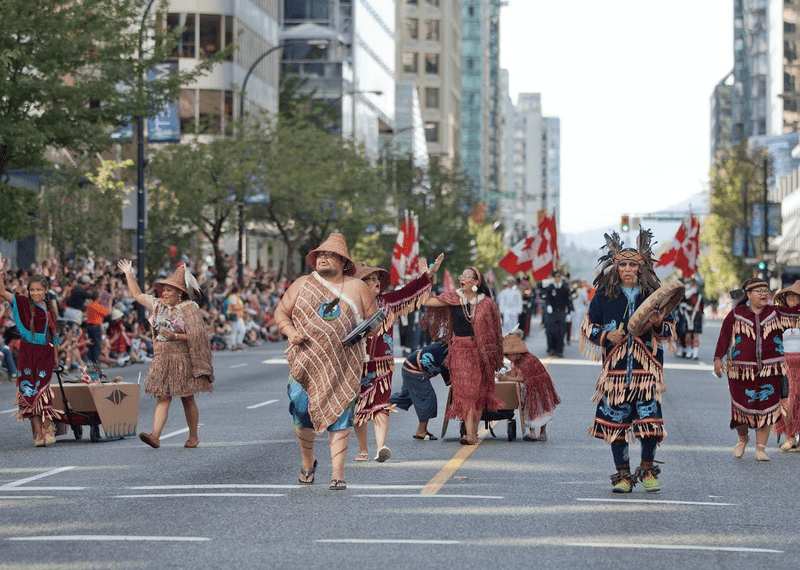With marijuana legalization set to begin in 2018, citizens can participate in the new cannabis market, First Nations included. Some members of Canada’s First Nations communities see legal recreational marijuana not only as an economic opportunity, but also as a valuable weapon in the war on poverty. They’re hoping that the resources from legal cannabis could bolster treaty land governments and community services. But, justifiably so, they want to be able to set their own rules when it comes to cannabis sales.
The cannabis industry itself might not be the final answer to problems plaguing indigenous communities, but it could help provide sustainable development amidst a long-standing struggle for economic independence. Indigenous-operated marijuana stores on First Nations land could have the advantage of tax exemptions, similar to the rebate programs for tobacco products. However, almost none of this has been addressed by Ottawa or the provinces where these communities hold land.
Ambiguity When it Comes to First Nations & Legal Marijuana
As it’s written now, Bill C-45 to legalize marijuana makes no mention of indigenous peoples or how legalization would work on First Nation land. For example, there’s no outline for who will decide how cannabis sales and taxes are controlled on reserves.
There’s also been no definitive language about how marijuana stores would work on reserves. Since federal legislation gives the right to conduct trade on First Nation lands, it could mean that stores could open on treaty land despite the guidelines for legalization set out by the provinces and territories. In provinces where the government will hold a monopoly on sales, this could mean that First Nations peoples will operate private stores on their land. But with the fast-approaching deadline for legalization, the lack of framework makes planning any kind of legal marijuana business a logistical nightmare.
Indigenous Leaders Left Out of Legal Cannabis Decision Making
When provincial finance ministers met in December to push back on the 50-50 federal government/provinces cannabis tax revenue split, indigenous leaders weren’t invited to the table. Isadore Day, the Ontario regional chief of the Assembly of First Nations, calls the lack of inclusion embarrassing. While some see cannabis as a cash cow, Day has his concerns. One is that the black market may target First Nations peoples in an attempt to remain profitable.
Another concern is that the federal government won’t cover the cost of medicinal marijuana for those living on reserves, as is done for other prescribed medications. With no drug identification number assigned to medical marijuana, it’s not covered by the First Nations Inuit health branch. “We entered into treaties,” Day told the Toronto Star. “We have to stand our ground... the right to have health care covered... we will continue to push so that applies.”
Marijuana Tax Revenue Important for Northwest Territories
When the federal government announced it would give provinces 75% of the tax revenue from non-medical cannabis sales for the first two years of legalization, Northwest Territories' Finance Minister, Robert C. McLeod, acknowledged that it would be huge for his region, much of which is inhabited by First Nations communities. But according to McLeod, sharing taxes with indigenous communities has not been discussed.
Dene National Chief Bill Erasmus feels that First Nations should be getting a portion of the tax revenue because, he says, "Cannabis is going to come from our lands."
3 First Nations Apply to Sell Marijuana at Winnipeg Locations
One way that First Nations are taking some ownership in the new marijuana market is by partnering with key members from the industry. Five Manitoba First Nations have now outlined plans for retail cannabis locations on treaty land, including possible storefronts in downtown Winnipeg. Manitoba is one of a few provinces allowing private ownership of non-medical cannabis retail stores. When the Manitoba government requested proposals for interested cannabis retail operations, the province's First Nations joined with National Access Cannabis, an established chain of medical cannabis clinics, to submit proposals. The Nations involved include:
- Long Plain First Nation
- Peguis First Nation
- Nisichawayasihk Cree Nation
- Brokenhead Ojibway Nation
- Opaskwayak Cree Nation, which already invests in National Access Cannabis
The Opaskwayak Cree Nation and National Access Cannabis partnership is just the sort that the federal government wants to see more of, allowing indigenous communities to participate and profit from the legal cannabis economy.
Any marijuana store locations approved for First Nations land would help employ members of those communities, but the final decision rests on each reserve's own government.
Photo credit: GoToVan
